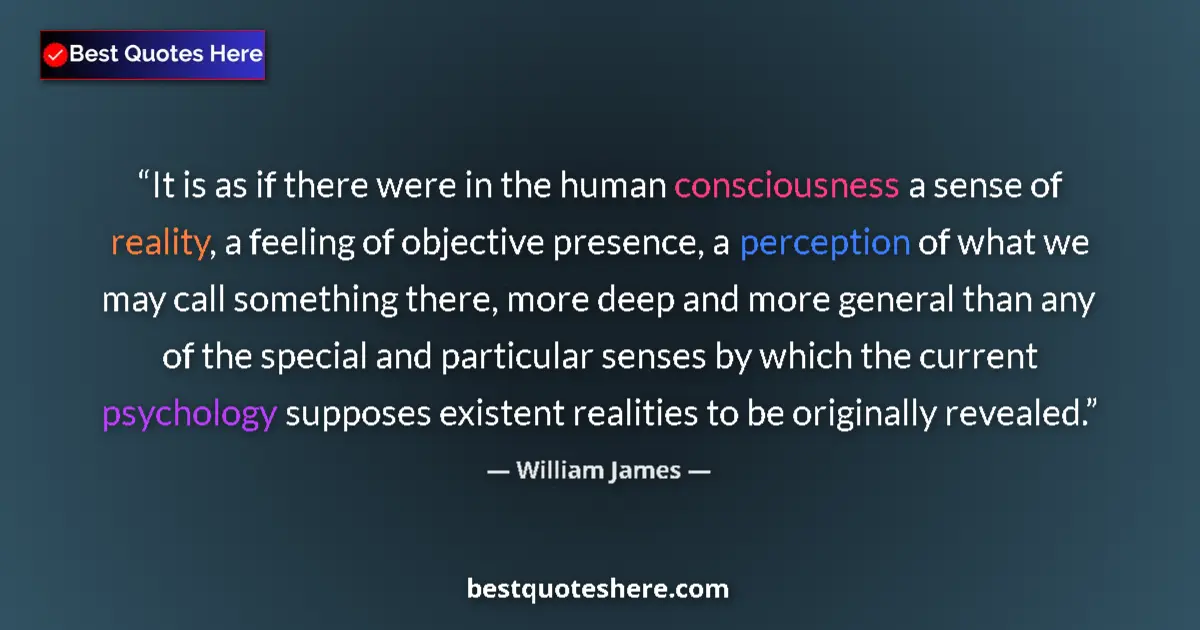"It is as if there were in..." - Quote by William James
It is as if there were in the human consciousness a sense of reality, a feeling of objective presence, a perception of what we may call something there, more deep and more general than any of the special and particular senses by which the current psychology supposes existent realities to be originally revealed.

More by William James
“Consciousness... does not appear to itself chopped up in bits. Such words as 'chain' or 'train' do not describe it fitly as it presents itself in the first instance. It is nothing jointed; it flows. A 'river' or a 'stream' are the metaphors by which it is most naturally described. In talking of it hereafter, let us call it the stream of thought, of consciousness, or of subjective life. Source of the expression 'stream of consciousness'.”
“Your hopes, dreams and aspirations are legitimate. They are trying to take you airborne, above the clouds, above the storms, if you only let them.”
“Man's chief difference from the brutes lies in the exuberant excess of his subjective propensities. Prune his extravagance, sober him, and you undo him.”
More on Consciousness
“Plants are the young of the world, vessels of health and vigor; but they grope ever upward towards consciousness; the trees are imperfect men, and seem to bemoan their imprisonment, rooted in the ground.”
“It consists mainly of the storm of thoughts that is forever blowing through one's head.”
“Freedom stretches only as far as the limits of our consciousness.”
More on Reality
“Most men are like me. They cannot live in a universe where the most bizarre thought can in one second enter into the realm of reality--where, most often, it does enter, like a knife in a heart.”
“This world is nothing. It is at best only a hideous caricature, a shadow of the Real. We must go to the Real. Renunciation will take us to It. Renunciation is the very basis of our true life; every moment of goodness and real life that we enjoy is when we do not think of ourselves.”
“'What is' is more important than 'what should be.' Too many people are looking at 'what is' from a position of thinking 'what should be'.”